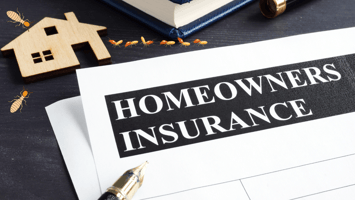Raccoons may appear cute and harmless with their masked faces and bushy tails, often evoking a sense of curiosity and amusement, but their presence can lead to significant problems for homeowners, business owners and the environment.
Understanding Raccoon Behavior and Habits
Raccoons, often a nuisance in Nassau County and across Long Island, are nocturnal and intelligent creatures. Known for their remarkable intelligence and adaptability, these creatures thrive in both urban and rural settings. Their most notable feature is their nimble front paws, which work much like human hands, enabling them to easily open garbage cans, manipulate objects, and gain entry into homes and attics.
As omnivores, raccoons eat a wide variety of foods, from fruits and vegetables to small animals and, most frequently, human trash. They are expert scavengers and will travel several miles within their home range in search of a meal. Recognizing these behaviors is the first step toward effective wildlife control and raccoon prevention for your Long Island property.
Risks and Damages of Raccoon Infestations
Ignoring a raccoon infestation can lead to significant problems for your home or business on Long Island. Beyond the nuisance they present, raccoons can cause major property damage:
-
Structural Damage: Raccoons frequently tear off shingles, rip insulation, and chew through wiring as they attempt to access and nest in attics, chimneys, and crawl spaces. This can lead to expensive home repairs and potential fire hazards.
-
Health Risks: Raccoons are vectors for several serious diseases and parasites that can be transmitted to humans and pets. These include rabies, Leptospirosis, Giardiasis, and the raccoon roundworm (Baylisascaris procyonis), which is especially dangerous. Their droppings can harbor these harmful pathogens.
Promptly addressing a raccoon problem is crucial for property safety and family health. While they may appear harmless, their presence requires professional wildlife removal to ensure a safe and permanent solution.
Effective Preventative Measures to Keep Raccoons at Bay
Preventing raccoon infestations starts with making your property less attractive to these animals.
-
Secure Trash Bins: Use tight-fitting lids and store bins in a secure location on your Long Island property to prevent raccoons from accessing food.
-
Remove Food Sources: Regularly clean up fallen fruits, nuts, and other food debris from your yard to eliminate potential food sources for raccoons.
-
Seal Entry Points: Install chimney caps and repair any damaged vents or screens to block potential entry points and prevent raccoons from entering your attic or home.
-
Install Deterrents: Use motion-activated lights and sprinklers to deter raccoons from your yard and commercial properties.
-
Professional Wildlife Control: If you have an existing raccoon problem, consider contacting a professional wildlife control service on Long Island to safely and humanely remove the animals and prevent future infestations.

%20(1920%20x%20600%20px)%20(800%20x%20400%20px)rac.jpg?width=1920&height=600&name=_(500%20x%20500%20px)%20(1920%20x%20600%20px)%20(800%20x%20400%20px)rac.jpg)

.png?height=200&name=damage%20social%20(1).png)
%20(1).png?height=200&name=squirrels%20in%20attic%20(1200%20x%20628%20px)%20(1).png)